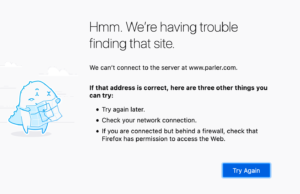Quote of the day
”Literature is mostly about having sex and not much about having children. Life is the other way round.”
Musical alternative to the morning’s radio news
Grieg | Piano Concerto II, Adagio | Arthur Rubinstein
Link
I included this a while back, but last night listened to it again and found it utterly riveting. Often video of musicians at work is annoying and distracting. But this particular one is hypnotic, especially as one watches Rubenstein (who always reminds me of Bertrand Russell) in what looks like a trance as he awaits his turn to play.
The WhatsApp Exodus

This clever satirical image comes from a post on Quentin’s blog about the stampede from WhatsApp after its owner, Facebook, published an ultimatum to users which basically said: share data with Facebook or stop using the app.

Quentin was a trifle surprised by the fact that
lots of people are shocked to discover that it now says they will share your details — location, phone number, etc — with the rest of the Facebook group.
I actually read, or at least skimmed, the Terms when they came out, and didn’t blink an eye, because I’ve always assumed that’s what they did anyway! I deleted my Facebook account many years ago, but I was aware that they still knew a lot about me because I do still use WhatsApp and Instagram (though only about once a month).
WhatsApp is the only Facebook service that I actually use. I joined it long before it was owned by Facebook and was charmed by it because of its neat design, the declared philosophy of its founders that it would never accept advertising and the fact that it had an honest business model: free use for the first year, and a modest annual fee after that.
Not surprisingly, I was mightily pissed off then when Facebook acquired WhatsApp for a staggering $19B in 2014. It was an outrageous sum so I guessed that the founders just caved. Who wouldn’t? But after that my use of it declined.
Two things changed that. One was the fact that two family members moved to Australia; the other was the lockdown imposed by the pandemic. After that, WhatsApp became part of the central emotional infrastructure of our extended family. And it has been, frankly, wonderful. But when the Facebook ultimatum arrived I thought: ok; enough’s enough. And I announced to the group that I would — with regret — be deleting my account and moving over to Signal, citing the ultimatum as the reason. I also tried to indicate that I would not feel judgemental about anyone who chose to remain.
Frankly, I expected nobody else to depart. My feeling was that the network effect of WhatsApp, with its 2B+ users would be too great. And besides, most members of my family are not techies. Somehow I couldn’t see them bothering with Signal.
How wrong can you be? To my astonishment, I suddenly discovered that one of them (who is a serious geek) had set up a Signal group, and family members were rapidly joining. Now my phone is buzzing with messages from my family just it did when we were all on WhatsApp. And it turned out we were not unusual: everywhere people were flocking to Signal (and to Telegram, another encrypted app).
Here, for example, is the FT on the scale of the stampede:
Signal was downloaded 8.8m times worldwide in the week after the WhatsApp changes were first announced on January 4, versus 246,000 times the week before, according to data from Sensor Tower. The app also got a boost when Elon Musk, the chief executive of Tesla, tweeted “Use Signal” on January 7.
By contrast, WhatsApp recorded 9.7m downloads in the week after the announcement, compared with 11.3m before, a 14 per cent decrease, Sensor Tower said.
Telegram, a popular messaging app among cryptocurrency traders, also benefited from the WhatsApp concerns. It reached 11.9m downloads the week after the January 4 change from 6.5m the week before, Sensor Tower said. In a message sent to all its users on Tuesday, Telegram said that it had now surpassed 500m active users.
A few thoughts prompted by these developments.
-
Network effects create great power for incumbents — until they don’t. Investors regarded WhatsApp’s 2B happy users as constituting a defensive ‘moat’ round Facebook. But if a single event (a poorly-timed, badly phrased and preemptory pop-up notification) can trigger a stampede, it’s a reminder that moats can quickly run dry if they spring a leak.
-
The biggest irony perhaps is that for many WhatsApp users there would actually be no change. If you had taken the opportunity offered in 2016 to not have your data shared with Facebook then you would not be affected by the draconian new policy on February 8. But the Facebook messaging on this was poor and it seems that a lot of people didn’t realise that they would be exempt.
-
The kerfuffle led some analysts — notably Ben Thompson (he of the Stratchery newsletter) — to begin looking at the whole encrypted messaging marketplace and assessing the security of the five competitors — Signal, WhatsApp, Telegram, Facebook Messenger and iMessage. On message security, Signal came out top (and surprisingly, Apple’s iMessage bottom.
-
On the amount of data that can be harvested from an app, Signal also came out on top. Thompson’s rankings were:
1/ Signal, which only collects your phone number.
2/ iMessage, which collects your phone number and email address.
3/ Telegram, which collects your phone number and contact list.
4/ WhatsApp: Unless you opted out in 2016, Facebook does collect pretty much everything else it can get its hands on, including information about your device, your contacts, your IP-derived location, etc.
5/ Messenger is like WhatsApp, but with ads!
So, on balance, this looks like a good outcome for those who switched.
Long Read of the Day
We Mock the Rioters as Ignorant Buffoons at Our Peril
Jack Shafer on the dangers of disdainful myopia about the insurgency in the Capitol. Here’s how he winds up:
Yes, there was plenty of class resentment at play at the Capitol and lots of overt racism, but we can’t assume that this was just a revolution by the powerless, the pathetic and the rural. The most shocking thing about the attack on the Capitol was that so many of the rioters were people who better resemble our kin and neighbors than they do the so-called barbarians from the boondocks.
The point here isn’t to sympathize with the rioters, or even seek to “understand” them, but to see them as they are and to prepare ourselves for future confrontations. How are we to deal with them as a country? I want to believe the intruders who now say they regret their actions of January 6. That’s exactly the sort of response you would hope to hear from an otherwise lawful American. But for every such apology we can be certain at least one person—and likely more—has been radicalized, maybe irreversibly, by the events. There are no easy ways to quell this national rebellion, a rebellion that appears to be gaining velocity, but the first step has got to be organizing a political taxonomy that doesn’t marginalize them as aliens. Instead of thinking of the rioters as “them,” try thinking of them as “us.” It’s bound to make you uncomfortable, but at least it’s a start.
Lockdown viewing
Lovely excerpt from David Vincent’s latest Covid diary post:
We also have some information about what we chose to watch on our television sets during 2020. The most popular video, boxed or downloaded, was Frozen II, with sales of 973,000. This suggests a market driven by children, or by parents driven to distraction finding them something to do. I have yet to encounter this film, so have no explanation for its success. Instead I ask my oldest granddaughter, now eight years old, to compare the sequel to the original. She writes:
“yes I have watched it and I do think that it is a little bit better than the first one because it has quite a lot more to it and so it is a bit more exciting. There is also a little bit of a mystery in it because they have to find out what happened to their parents and how they met. There are also lots of different elements to the story, more people and more adventures and more mysteries!”
David’s response? “Better get a copy.” My response: smart grandaughter!
Why those of us who are baffled by Trump’s supporters are the Weird ones.
Gillian Tett, the Financial Times’s US Editor had a fascinating column on Saturday which is, sadly, probably behind a paywall. In it she addresses the bafflement that many of us felt after discovering the extent of Republican support for the ‘insurrection’ on January 6.
A snap YouGov survey released last week suggested that only a quarter of Republicans viewed the attack on the Capitol as a threat to democracy — and almost half approved the storming of the halls of Congress.
A separate poll last December by Quinnipiac University showed that three-quarters of Republicans thought that there was widespread voter fraud during the November presidential election (while 97 per cent of Democrats did not believe this).
She also cites an Edelman survey which suggests that
many Americans today only have faith in people and institutions that are familiar to them, be it in their neighbourhood, company, line of sight or social group, meaning that “trust is local”. Tribalism is rife, in other words, in both ideological and epistemological terms.
The standard reaction is to blame Trump, Fox News, social media, whatever. But Tett suggests that an alternative explanation might come from a recent book by the Harvard evolutionary biologist and anthropologist Joseph Henrich — The Weirdest People in the World: How the West Became Psychologically Peculiar . In it Henrich outlines the mentality of Western, Educated, Industrialised, Rich and Democratic (“WEIRD”) people, versus other non-WEIRD groups. WEIRD modes of thought are, he says, based around the ideals of individualism, moral consistency and, above all, the type of sequential logic used in alphabet-based writing systems. Western elites tend to assume that it is the only valid mode of thought. In other words, inheritances of the Enlightenment.
Henrich’s view is that WEIRD thinking is culturally and historically an outlier. And the key thing to understand about non-WIERD modes of thought, says Tett, “is that gut reactions to the patterns in an ecosystem matter more than focused, one-directional reasoning, and that performative symbols count more than words”.
So what Trump has done is masterfully to play to this mentality on an epic scale. But for us WIERDos it’s so hard to comprehend that we have basically ignored it. Which is one of the consequences of being neither historians nor anthropologists.
Useful to remember, then, that Gillian Tett studied anthropology before she took up journalism. Which maybe was one of the reasons she was among the first journalists to suspect that the sub-prime mortgage business was a gigantic scam.
This blog is also available as a daily email. If you think this might suit you better, why not subscribe? One email a day, delivered to your inbox at 7am UK time. It’s free, and there’s a one-click unsubscribe if your decide that your inbox is full enough already!










